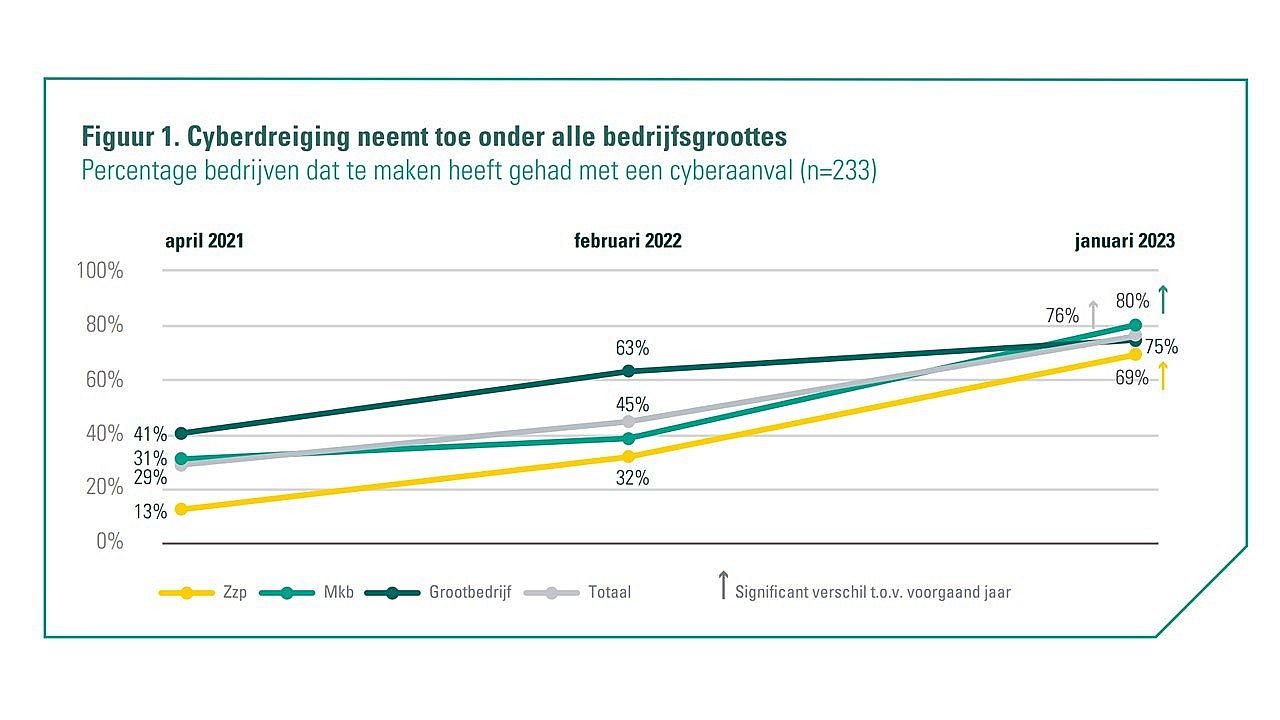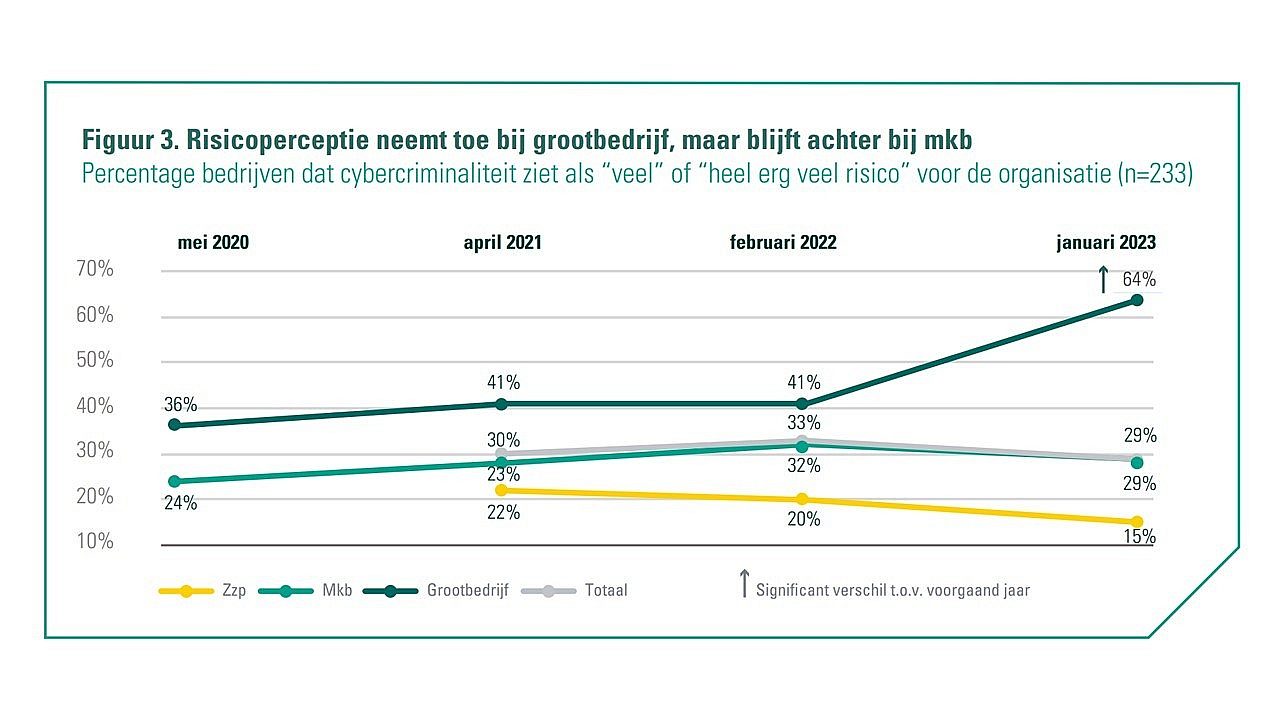In contrast, larger organizations have seen a substantial increase in their risk perception. Small businesses must therefore step up their game, partly to avoid losing contracts due to new legislation.
Despite many businesses feeling secure, the likelihood of falling victim to cybercrime is high. Companies are digitally interconnected in various ways. Recently, several market research firms reported data breaches following a hack on software vendor Nebu, exposing the personal data of at least two million Dutch citizens. These agencies, often falling into the SME category, gauge customer satisfaction on behalf of larger organizations such as NS, VodafoneZiggo, and CZ.







